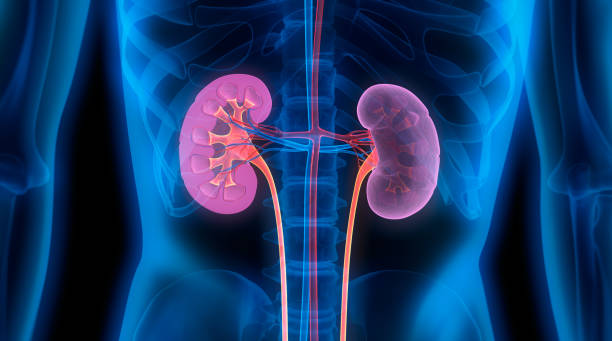Make an Appointment
We hear the term kidney failure almost every day around us. This is a condition that occurs when the bean-shaped organ kidney loses its ability to filter blood. In that condition, dangerous levels of waste may accumulate, and your blood’s chemical makeup may get out of balance.
Acute kidney failure also called an acute renal failure
or acute kidney injury develops rapidly, usually in less than a few days. Acute kidney failure is most common in people who are already hospitalized, particularly in critically ill people who need intensive care.
What causes kidney diseases? Signs and symptoms of acute kidney failure may include decreased urine output, although occasionally urine output remains normal. Fluid retention, causing swelling in your legs, ankles or feet. Shortness of breath, fatigue, confusion, nausea, weakness, irregular heartbeat, chest pain or pressure, seizures or coma in severe cases, sometimes acute kidney failure causes no signs or symptoms and is detected through other means.
The question of what causes kidney diseases includes many answers. Acute kidney failure can occur when you have a condition that slows blood flow to your kidneys this can cause direct damage to your kidneys. In a condition when your kidney’s urine drainage tubes become blocked and wastes can’t leave your body through your urine. Impaired blood flow to the kidneys. Diseases and conditions that may slow blood flow to the kidneys are the many reasons. Kidney injuries include blood or fluid loss, blood pressure medications, heart attack, heart disease, infection, liver failure and others.
These diseases, conditions and agents may damage the kidneys and lead to acute kidney failure. Blood clots in the veins and arteries in and around the kidneys. Toxins, such as alcohol, heavy metals and cocaine. Urine blockage in the kidneys, bladder cancer, blood clots in the urinary tract, cervical cancer, colon cancer is the conditions that lead to kidney diseases.
If your kidneys suddenly stop working, doctors call it acute kidney injury or acute renal failure. Not enough blood flow to the kidneys, direct damage to the kidneys, urine backed up in the kidneys or have a traumatic injury with blood loss, or dehydrated or your muscle tissue breaks down, sending too much protein into your bloodstream, have an enlarged prostate that blocks your urine flow or taking certain drugs or are around certain toxins that directly damage the kidney. Sometimes autoimmune diseases when your immune system attacks your body can also cause an acute kidney injury. People with severe heart or liver failure commonly go into acute kidney injury as well.
When your kidneys don’t work well for longer than three months, doctors call it chronic kidney disease. You may not have any symptoms in the early stages, but that’s when it’s simpler to treat. Diabetes types 1 and 2 and high blood pressure are the most common culprits. Immune system diseases, long-lasting viral illnesses, such as HIV and AIDS, hepatitis B, and hepatitis C. Pyelonephritis is a urinary tract infection within the kidneys, which can result in scarring as the infection heals. It can lead to kidney damage if it happens several times. Inflammation in the tiny filters or glomeruli in your kidneys. Polycystic kidney disease is a genetic condition where fluid-filled sacs form in your kidneys.
Defects present at birth can block the urinary tract or affect the kidneys. One of the most common ones involves a kind of valve between the bladder and the urethra. A urologist can often do surgery to repair these problems, which may be found while the baby is still in the womb. Drugs and toxins such as lead poisoning, long-term use of some medications including ibuprofen and naproxen can permanently damage your kidneys.
Some forms of kidney disease are treatable. The goals of these treatments are to ease symptoms, help keep the disease from getting worse, and lessen complications. In some cases, your treatment may help restore some of your kidney function. There is no cure for chronic kidney disease.
Once your kidneys can’t keep up with waste on their own, you’ll have treatment for end-stage kidney disease. Dialysis is the process where extra waste and extra fluid are taken out of your body when your kidneys can’t do it anymore. A kidney transplant is another option where a surgeon replaces your kidney with a healthy one from a donor. This donor can be living or deceased. After the procedure, you take medicine for the rest of your life to make sure that your body doesn’t reject your new kidney.


9 Comments
Pingback: What causes kidney diseases? – Sujata Birla Hospital
Pingback: Why does abdominal pain happen? | Sujata Birla Hospital
Pingback: Signs of Kidney Disease | Sujata Birla Hospital
Pingback: Signs of Kidney Disease – Sujata Birla Hospital
Pingback: XXX Chromosome Disorder | Sujata Birla Hospital
Pingback: XXX Chromosome Disorder – Sujata Birla Hospital
Pingback: Health Benefits of Coconut | Yash Birla | Birla Healthcare
Pingback: All You Need To Know About Dry Skin | Sujata Birla Hospital
Pingback: Alternative Treatments for Kidney Illness Beyond Dialysis | Sujata Birla Hospital